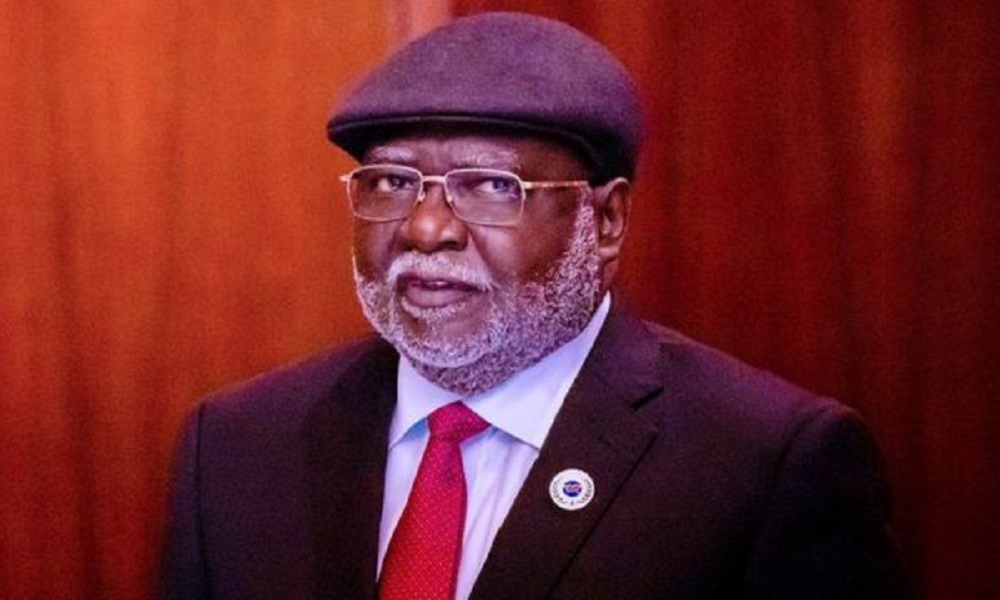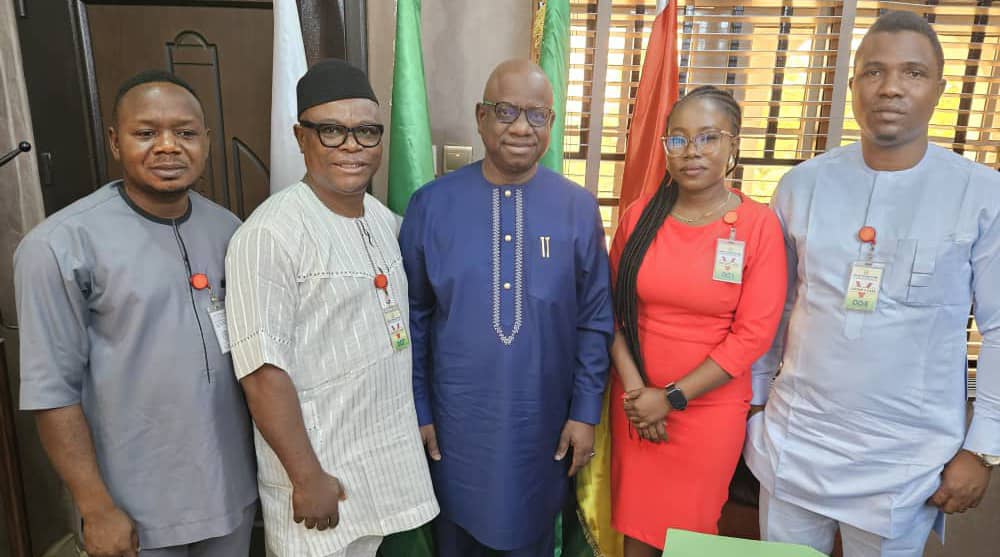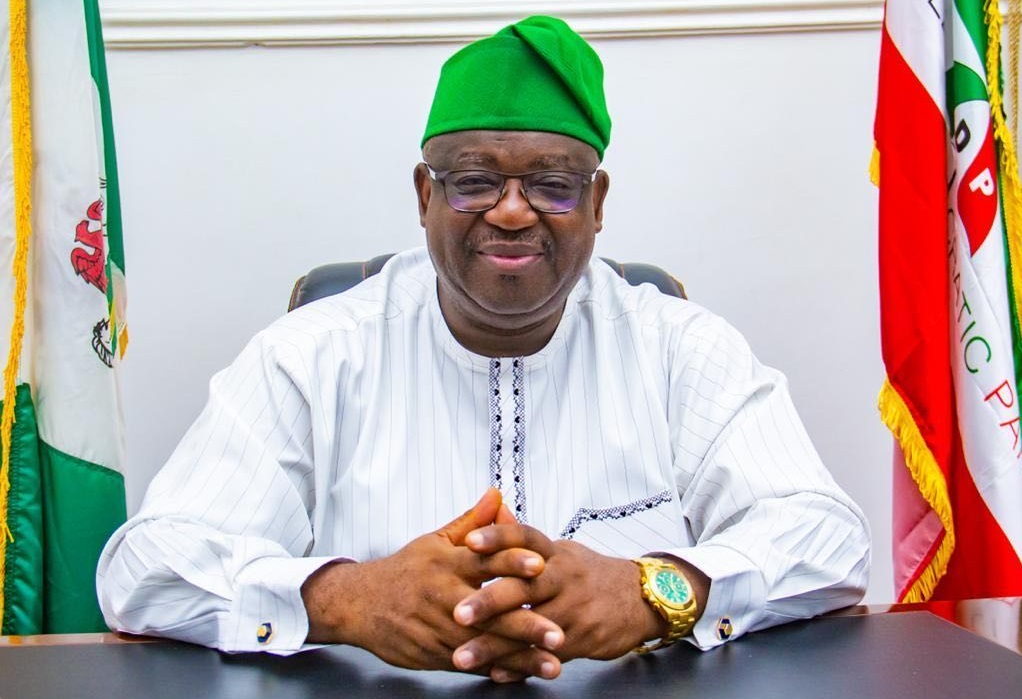News
Appointment of Judges: FCT Chief Judge schedules exam for CJN’s daughter, others, against protest

Chief Justice Husseini Baba-Yusuf has scheduled a recruitment examination for new judges on the FCT High Court in defiance of a parliamentary resolution that said he should pause the exercise until outstanding questions over applicable statutes have been settled.
Peoples Gazette learnt from judiciary sources that Mr Baba-Yusuf has asked Oluwakemi Ariwoola, daughter of the chief justice of Nigeria, and several others to attend a written test for promotion to the FCT High Court from their current positions as magistrates on Saturday.
The Government Secondary School, Maitama, was chosen as the venue, according to the notification letter sent out for the February 24 examination.
Mr Baba-Yusuf’s daughter, Maryam, was also selected to be on the court. He has also accepted Munira Ibrahim Tanko, a junior magistrate and daughter of erstwhile Chief Justice Ibrahim Tanko Muhammad, as a candidate from Bauchi.
The details emerged over a week after lawmakers protested after The Gazette’s story and queried Mr Baba-Yusuf’s decision to appoint 12 new judges to fill open positions on the 70-member high court that adjudicates issues across the Nigerian capital.
The motion moved by Enwo Igariwey was overwhelmingly adopted in a voice vote by Speaker Tajudeen Abbas, who subsequently referred it to the House Committee on FCT Judiciary.
Mr Igariwey’s state, Ebonyi, was among the four states, alongside Imo, Abia and Bayelsa, The Gazette reported were left out of judicial appointments in the FCT High Court led by Mr Baba-Yusuf. Legal expert Chidi Odinkalu observed in his latest column that the controversial appointments undermined protests over poor pay in the judiciary.
The Gazette found that recruiting the children of judiciary leaders also necessarily involved stunting the career progression of other magistrates from everyday households in at least four states, our findings showed. It was unclear why Messrs Ariwoola and Baba-Yusuf prioritised their daughters as judges from Oyo and Kogi, which, respectively, already had two judges on the FCT High Court, when Abia, Imo, Bayelsa and Ebonyi each has no single judge on the court and the Nigerian federal character policy codified in Chapter Two of the Constitution required staffing the 70-person bench equitably among citizens from the 36 states and the capital Abuja.
“The fact that the underlying philosophy of the Federal Character Commission principle is to provide equality of access in public service representations, curb dominance by one or few sections of the country, promote inclusiveness and national unity,” Mr Igariwey said. “Violation of this principle of our Constitution may not only be destabilising but could open the floodgates to litigation.”
The Gazette heard that Mr Baba-Yusuf did not update the list to include Ebonyi and other states that were left out as of Thursday night. It was not immediately clear how the parliament would respond to the chief judge’s defiance, but lawmakers argued they had the power to force the court to comply with existing laws governing the recruitment of judges across the nation’s capital.
News
Guinea Woos Nigerian Investors to Join $20bn Projects

News
Nigeria’s inflation jumps to 24.23% in March 2025

Nigeria’s headline inflation rate rose to 24.23% in March 2025, according to the official government data source, the Nigeria Bureau of Statistics (NBS).
The rise in the country’s inflation rate, from 23.18% back in February 2025 to 24.23% in March 2025, reflected a major increase in the rising commodity and energy costs in the last few weeks.
According to the March 2025 Consumer Price Index (CPI) Report which measures the inflation rate released by the government agency on Tuesday, the country’s food inflation rate was 21.79% year-on-year in March 2025.
The food inflation rate, however, showed a decrease compared to the food inflation rate of 23.51% recorded in February 2025.
Economists had predicted that the country’s inflation rate which decreased minimally in February would rise when the Dangote Refinery and the state-run NNPCL got entangled in a petrol price war that culminated in the temporary termination of a naira-for crude agreement between the two oil companies and the subsequent increase in the pump price of petrol.
Some observers had also said the minimal reduction in the prices of food commodities experienced earlier in February was not sustainable, attributing the temporary decline in the prices of food to the importation intervention of the Federal Government.
Food and commodity inflation have skyrocketed as Nigerians battle what can pass for the worst cost of living crisis since the country’s independence over six decades ago, a development that economic wizards have attributed to President Bola Tinubu’s twin policies of petrol subsidy removal and unification of the forex rates.
News
Plateau 51: Mutfwang mourns, says “we failed you”, begs affected community

Governor Caleb Mutfwang of Plateau State has apologised to the people of Bassa Local Government Area (LGA) for the failure of government and security agencies to protect lives and properties.
Fifty-one persons were gunned down early Monday in the Zikke community of the LGA, with houses razed and many displaced about two weeks after a similar attack led to the killing of scores of persons in Bokkos Local Government Area.
Less than two days after the most recent assault, Governor Mutfwang apologised for the government’s inability to protect the people.
Fifty-one persons were gunned down early Monday in the Zikke community of the LGA, with houses razed and many displaced about two weeks after a similar attack led to the killing of scores of persons in Bokkos Local Government Area.
Less than two days after the most recent assault, Governor Mutfwang apologised for the government’s inability to protect the people.
The governor said this on Tuesday at the palace of the Paramount Ruler in Miango.
“I will tell you the truth: I have been crying since yesterday because I had trusted God that all the arrangements were put in place, that this will not happen again. We have made investments in security,” he said.
But like all human arrangements, sometimes they fail. I want to admit that on Sunday night into Monday morning, we failed you. Please, forgive me.”
He urged the people not to relent in their efforts to secure their communities and ensure that they complement security agencies’ efforts by providing vital information for intelligence gathering and expose the antics of the criminals.
Governor Mutfwang, in the company of security chiefs and members of the state executive council, was in Zikke community to commiserate with the people on the death of over fifty persons killed in Monday’s attacks.
The Paramount Ruler of Irigwe land, Ronku Aka, who is the Brangwe of Irigwe, urged the government to come to the aid of the communities with the provision of social amenities in the area.
The governor and the entourage also went to see some of the families who lost their loved ones in the attack. The victims have been buried just as members of the community demanded action to stem the rising wave of insecurity in the state.
Plateau State has been a hotbed of attacks, but the renewed spate of attacks adds a fresh layer of twist to the decades-long crisis rocking the North-Central state.
After the most recent assaults, President Bola Tinubu ordered security agencies to fish out the masterminds, describing the attacks as condemnable.
While experts have linked the lingering Plateau crisis to farmers-herders tussle for resources, Governor Muftwang said it was sponsored and genocidal.
According to him, over 64 communities in the state have been taken over by gunmen.
-

 News14 hours ago
News14 hours agoTears, anguish as Plateau Community buries 51 killed by bandits
-

 News13 hours ago
News13 hours agoSHOCKING! One month after giving birth, woman discovers another baby in her womb
-

 News11 hours ago
News11 hours agoCBEX: 60 fraudulent Ponzi scheme operators to avoid in Nigeria
-

 News19 hours ago
News19 hours agoPeter Obi speaks as Benue govt. blocks humanitarian visit
-

 News13 hours ago
News13 hours agoAngry investors raid CBEX office, loot assets in Ibadan after digital Platform crash
-

 News20 hours ago
News20 hours agoFUOYE VC suspended over sexual harassment allegations
-

 Politics13 hours ago
Politics13 hours agoIgbo Youths Set To Mobilize 5 Million Man-March In Support Of Tinubu, Kalu
-

 News13 hours ago
News13 hours ago‘Not something I’d wish on anyone’ — Melinda Gates opens up on divorce






